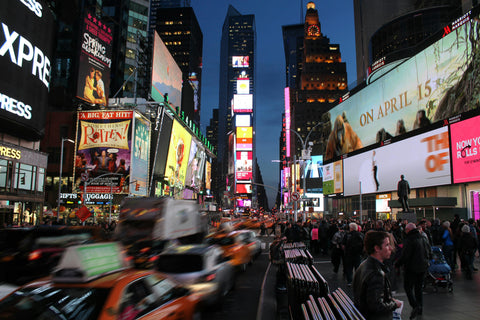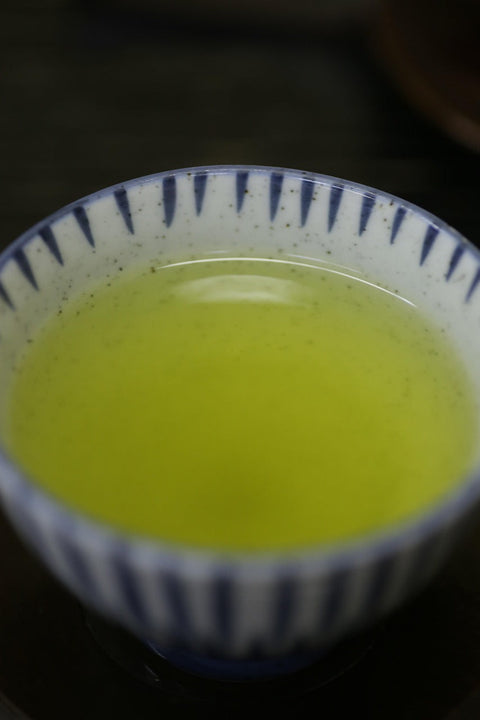
Both matcha and coffee are beloved morning rituals around the world. While they share some common ground—like caffeine and energy—they affect the body and mind in very different ways. Whether you're looking for sustained focus, digestive ease, or a calmer start to your day, understanding the differences between matcha and coffee can help you choose the right one for your lifestyle.
 1. Caffeine Content and Energy Release
1. Caffeine Content and Energy Release
Coffee:
A typical 240ml cup contains 80–100 mg of caffeine. It’s absorbed quickly into the bloodstream, often producing an immediate energy spike. While effective for a fast jolt, this can lead to crashes, jitteriness, and restlessness for some individuals.
Matcha:
Matcha contains roughly 35–70 mg of caffeine per serving, depending on the amount used and the grade. But what sets it apart is L-theanine, a naturally occurring amino acid that slows the absorption of caffeine and creates a smoother, sustained energy flow—often lasting 4 to 6 hours without a crash.
Best for:
-
Coffee: Quick wake-ups, short bursts of high activity
-
Matcha: Steady, focused energy for extended concentration or calm productivity
 2. Mental Focus and Calmness
2. Mental Focus and Calmness
Coffee:
Caffeine in coffee can improve alertness and reaction time, but high doses may overstimulate the nervous system and lead to increased anxiety or mental fatigue.
Matcha:
The combination of caffeine and L-theanine in matcha promotes a state of calm alertness. It supports alpha brain wave activity, often associated with meditation, focus, and reduced stress.
If your lifestyle requires:
-
Long hours of focus (e.g. work, studying, creative tasks)
-
A calm mind with sustained mental energy
Matcha may be the better choice.
 3. Digestion and Gut Health
3. Digestion and Gut Health
Coffee:
Coffee can stimulate the digestive system and act as a natural laxative, but it may also cause acidity, bloating, or digestive discomfort in some people, especially on an empty stomach.
Matcha:
Matcha is gentler on the stomach. It contains chlorophyll and catechins that support digestion and gut health without triggering acid reflux or irritation. It’s also alkaline-forming in the body.
 4. Nutritional Benefits
4. Nutritional Benefits
Coffee:
-
Rich in antioxidants such as polyphenols
-
May support brain health and reduce the risk of neurological diseases
-
Linked to improved metabolic activity
Matcha:
-
Contains high levels of EGCG, a potent antioxidant
-
Rich in chlorophyll, amino acids (like L-theanine), and catechins
-
May support liver function, cardiovascular health, and skin clarity
Because matcha is made by consuming the whole leaf, it delivers more concentrated nutrients than steeped tea—or even coffee.
 5. Taste and Versatility
5. Taste and Versatility
Coffee:
Bold, bitter, and roasted. Best served hot or cold, with milk or black. Some enjoy its depth, while others find it too strong or acidic.
Matcha:
Earthy, vegetal, slightly sweet, and grassy. Can be whisked into hot water, shaken cold, or blended into smoothies, milk drinks, and even desserts.
Matcha is incredibly versatile, offering a broader flavour range and culinary application.
 6. Which One Matches Your Lifestyle?
6. Which One Matches Your Lifestyle?
|
Goal |
Better Choice |
|
Quick energy spike |
Coffee |
|
Sustained, calm focus |
Matcha |
|
Sensitive stomach |
Matcha |
|
Heavy caffeine tolerance |
Coffee |
|
Creative or wellness ritual |
Matcha |
|
Enjoy bold, bitter flavour |
Coffee |
|
Versatility in preparation |
Matcha |
Can You Enjoy Both?
Absolutely. Many people enjoy coffee in the morning and matcha in the afternoon. Others switch based on mood or workload. Both beverages have a place in a balanced lifestyle—what matters is how they make you feel and perform.
At Forest Cloud, we offer both:
Each product is designed to complement different moments of your day.
The matcha vs coffee debate isn’t about which is better—it’s about what works best for you.
If you prefer quick stimulation and bold flavour, coffee fits the bill. If you’re looking for calm focus, digestive ease, and long-term wellness benefits, matcha is worth exploring.






